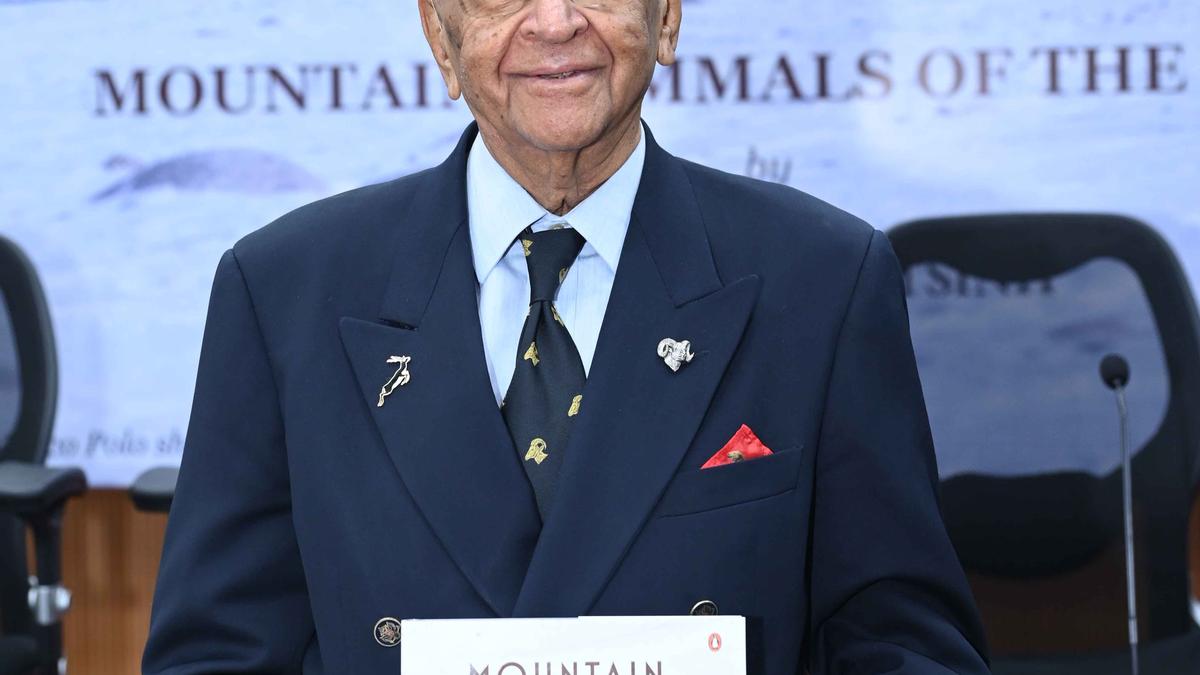
Legacy of conservation: Wildlife enthusiast M.K. Ranjitsinh launches new book
The Hindu
Discover the life's work of conservationist M.K. Ranjitsinh in his latest book, Mountain Mammals of the World.
Few people can claim to have shaped the future of India’s wildlife like M.K. Ranjitsinh, a man whose life reads like a chapter out of a conservationist’s dream. Born into the royal family of Wankaner in Saurashtra, Gujarat, Ranjitsinh has dedicated his life to preserving some of the world’s most endangered species. From helping save the central Indian barasingha from the brink of extinction during his tenure as the collector of Mandla, Madhya Pradesh, to being part of the task force that initiated Project Tiger, his contributions to conservation are profound and far-reaching.
After decades of fieldwork, Ranjitsinh has brought together his life’s work in his latest book, Mountain Mammals of the World published by Penguin Random House. The culmination of years of research, exploration, and dedication, the book is a comprehensive guide to 62 species and 78 subspecies of large mammals that roam the world’s mountain ranges. From the snow leopard in Ladakh to the elusive snow sheep in Siberia, this book offers not just scientific insights but also breathtaking photographs that capture the beauty and fragility of these creatures.
The book’s launch, held at WWF India’s headquarters in Lodhi Estate recently, was graced by Dr. Karan Singh, who hailed the work as a significant contribution to wildlife literature. Speaking passionately about the three pillars that inspired his book, Ranjitsinh says, “The majestic mountains and their wild inhabitants, the philosophy of Buddhism, and the unique cultural and natural landscape of Kashmir influenced my life and work deeply.
Mountain Mammals of the World is more than just a collection of facts and figures. It is a testament to Ranjitsinh’s lifelong love affair with wildlife, especially the creatures that inhabit the harsh and often unforgiving mountain environments. His daughter, Radhika Raje Gaekwad, describes the book as her father’s magnum opus and a life journey of his experiences.
Radhika recalls the numerous trips she took with her father, accompanying him on his expeditions to witness these animals in their natural habitats. “I’ve been to see the snow leopard and the snow sheep with him,” she says of her travels from Ladakh to Siberia.
In an era when biodiversity is under constant threat, Mountain Mammals of the World serves both as celebration of the remarkable creatures that inhabit our planet and a call to action to protect them. As his daughter puts it eloquently, “The book is not just about animals; it is about a man’s undying love for them.”











